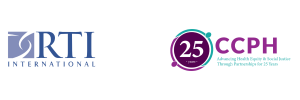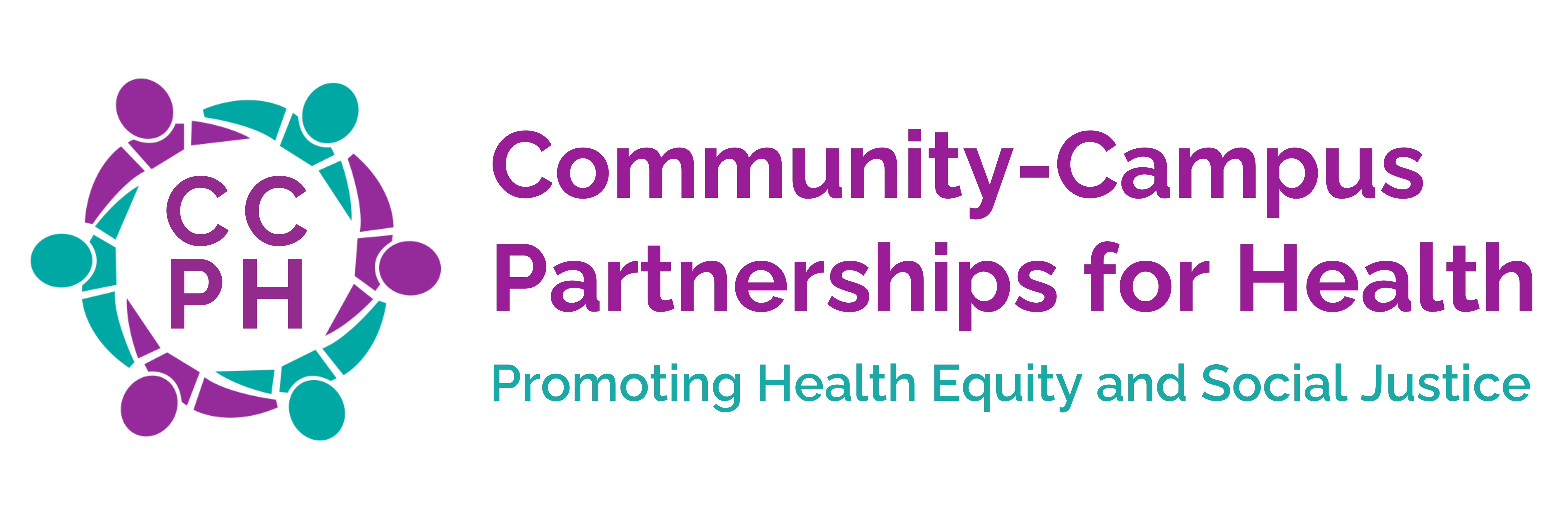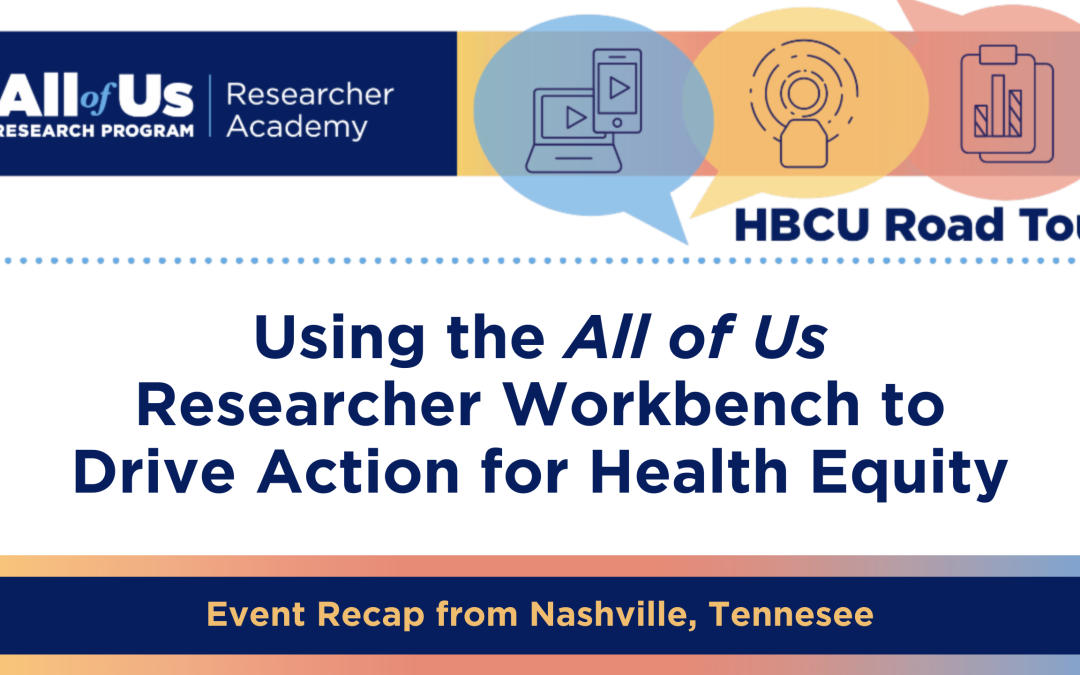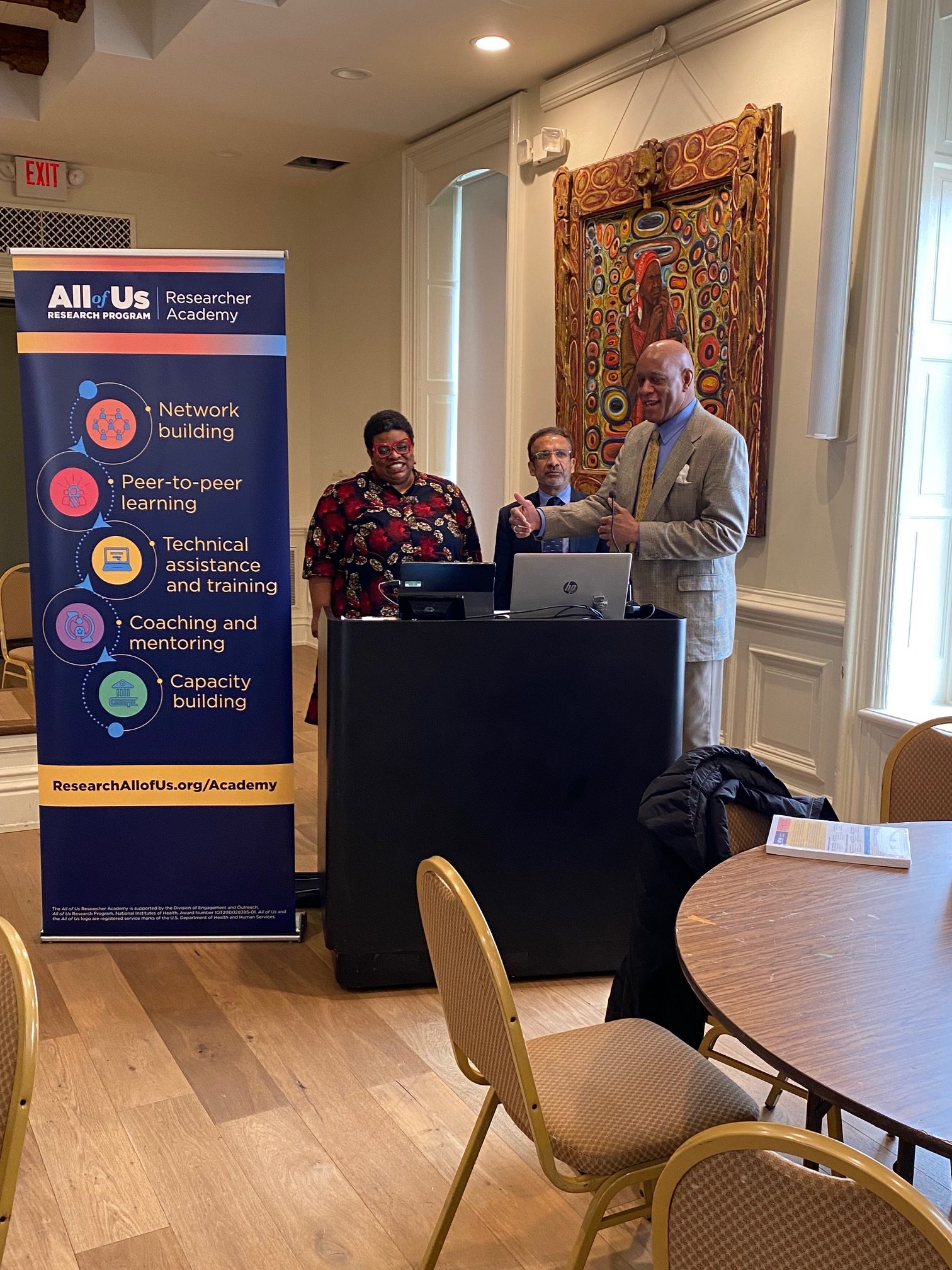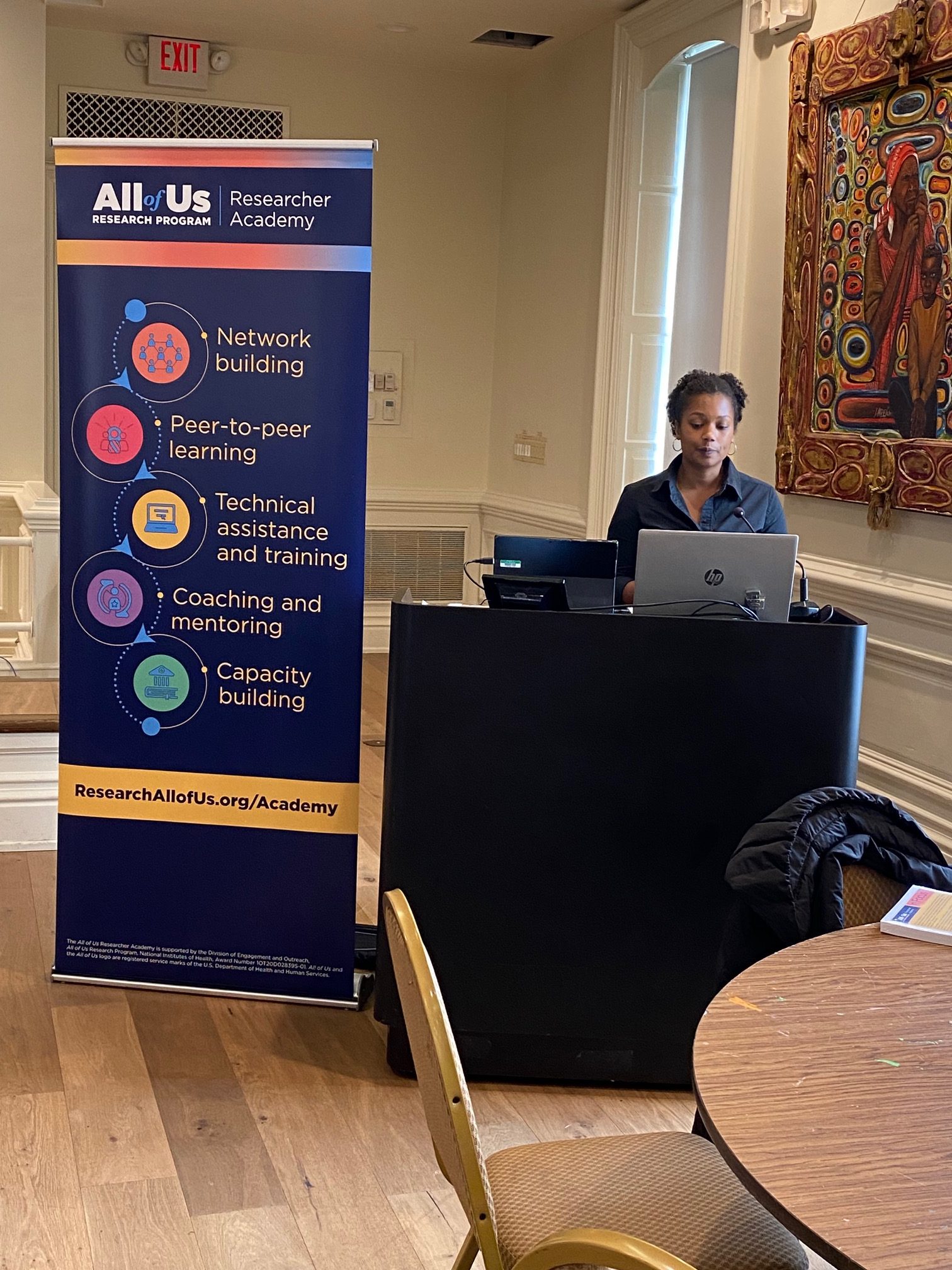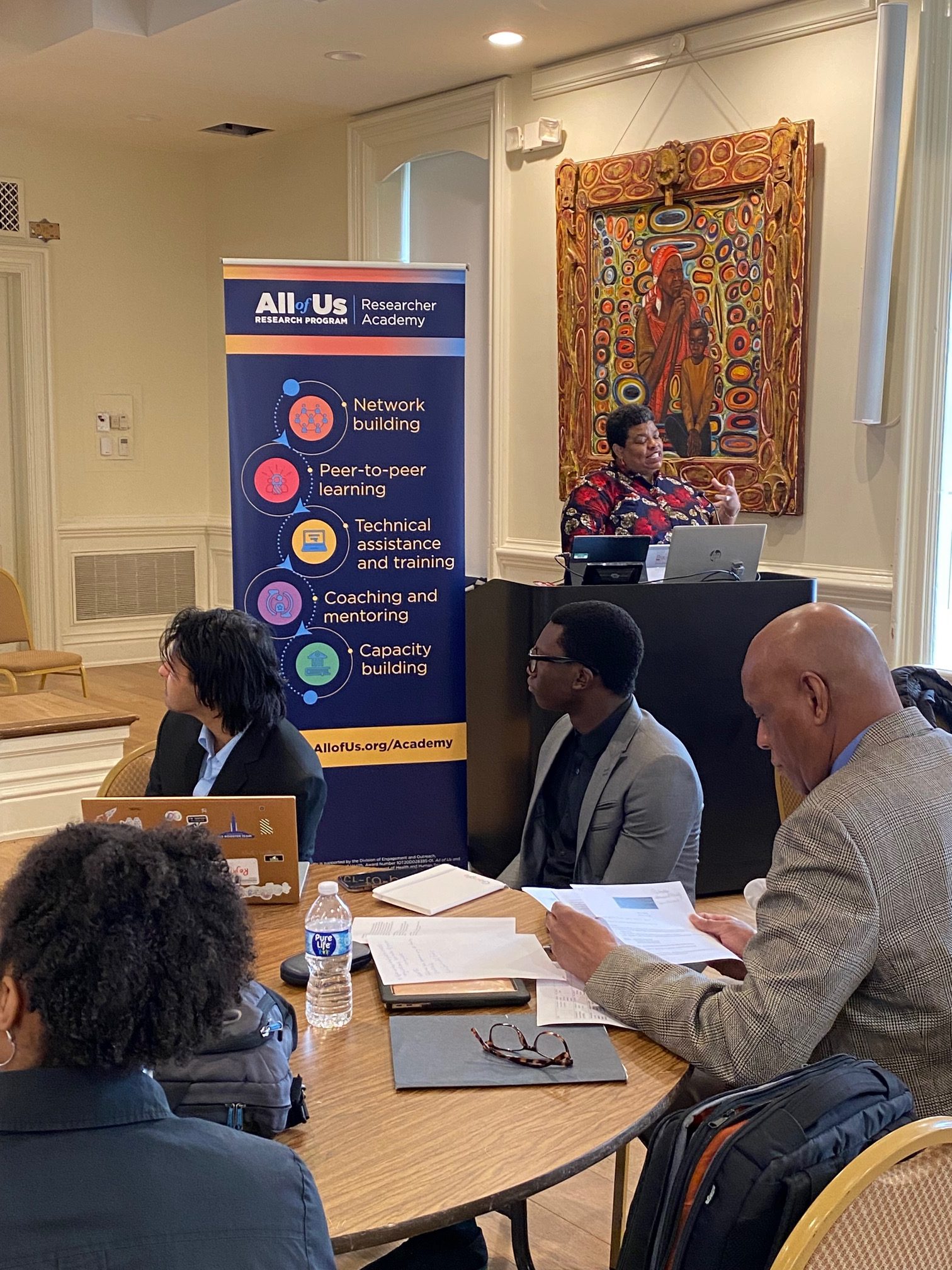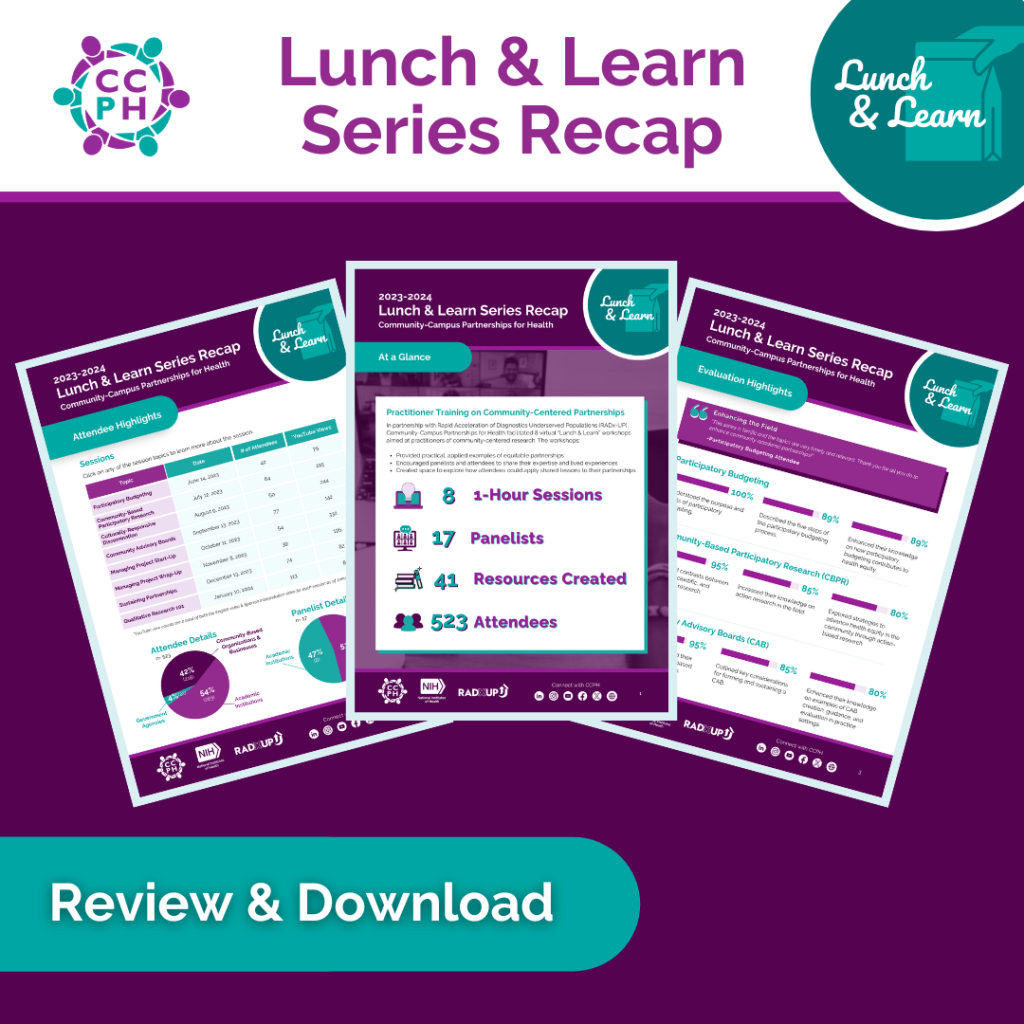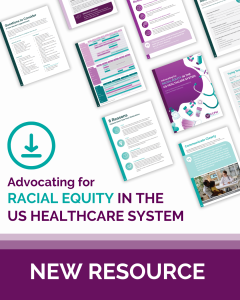The All of Us HBCU Road Tour: Using the All of Us Researcher Workbench to Drive Action for Health Equity event took place in Nashville, Tennessee, on February 28. This hybrid event was held at Fisk University’s historic Jubilee Hall, the first permanent building at one of the first Historically Black Colleges and Universities (HBCUs) founded after the US Civil War. As moderator Al Richmond, Executive Director of CCPH, explained to the crowd, the Hall was named after the Fisk Jubilee Singers, whose international tour funded the building’s construction. This history was present in the room: from the paintings lining the walls to the spirit of inquiry and purpose that pervaded the gathering.
The event introduced participants to the National Institutes of Health’s All of Us Research Program, which is building one of the largest and most diverse data sets of its kind, and the All of Us Researcher Academy, which is coordinated by RTI International and supports researchers from HBCUs and other institutions with a track record of training researchers underrepresented in the biomedical workforce who want to use All of Us data in their own research.
Undergraduate researchers from Fisk University — Oreoluwa Owoseeni and Rejin Nepal — presented their work using the All of Us Researcher Workbench to study the connections between sleep health and economic inequality. Oreoluwa told of his journey as a student being introduced to All of Us.
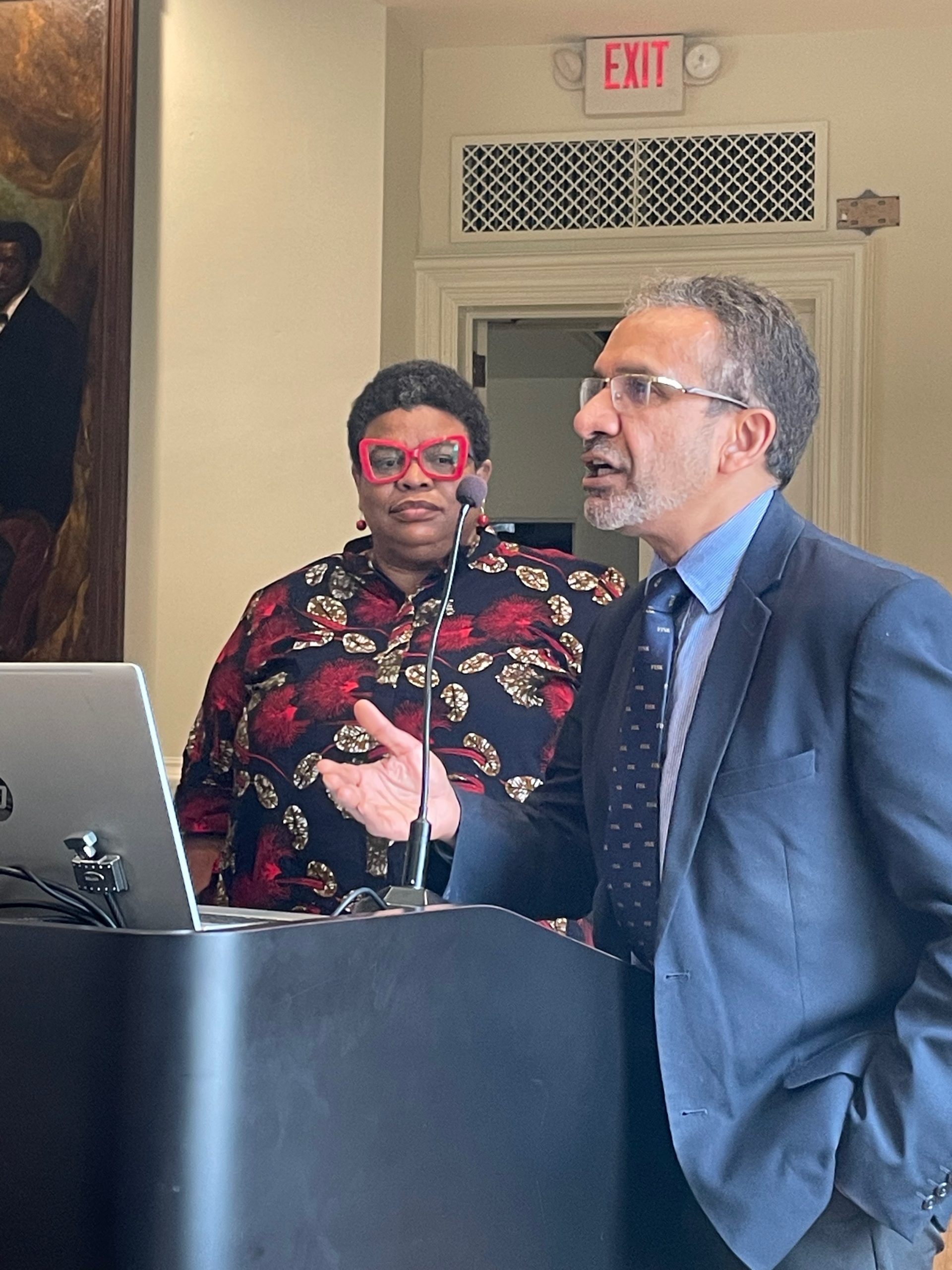
(Image caption) Institutional Champions Dr. Leah Alexander from Meharry Medical College (left) and Dr. Sajid Hussain (right) from Fisk University.
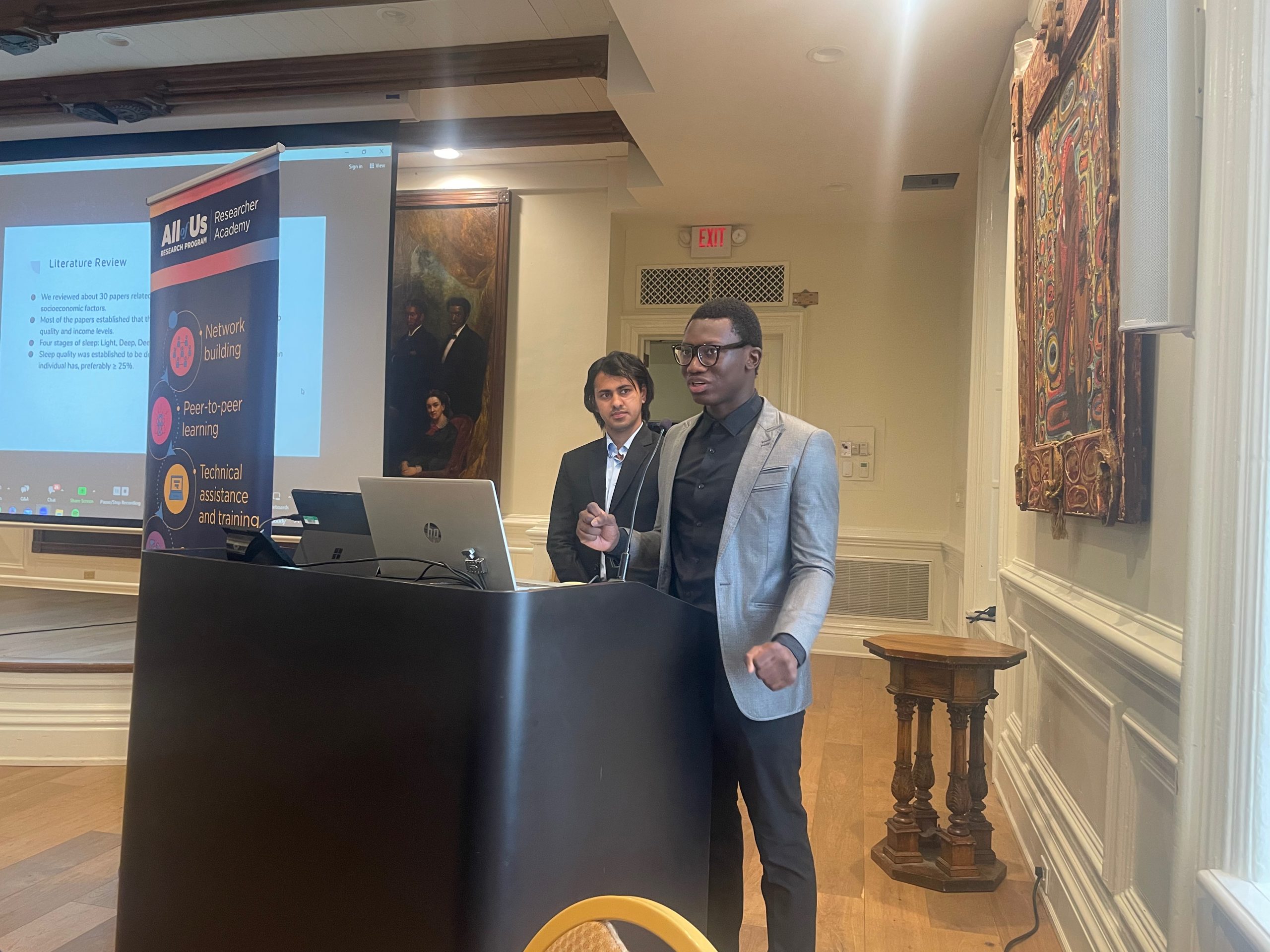
“The All of Us [Researcher Workbench], using Python programming language as well as comparing it with research questions for health care and equity, has been a very good intersection of my majors, biochemistry and data science. And it has just opened me into this whole world of computational science, looking at correlations, patterns, statistics. I would say it has been an awesome journey so far.”
(Image caption) Fisk undergraduate students Oreoluwa Owoseeni and Rejin Nepal present on their research on sleep disparities using the All of Us Researcher Workbench.
Dr. Leah Alexander, All of Us Institutional Champion and Director of the Master of Public Health program at Meharry Medical College, gave the second presentation. She, along with Dr. Sajid Hussain from Fisk, led the on-site planning for the event. Dr. Alexander detailed how her graduate students will use the Researcher Workbench to formulate public health research projects on a range of pressing topics.
In-person and online attendees learned about several facets of the All of Us Research Program — the breadth of data available, the flexibility and accessibility of its online portal, and how the data can be used to study a diverse range of health disparities. Dr. Sula Hood, Senior Research Scientist with RTI, presented on training and mentorship opportunities through the All of Us Researcher Academy, which she co-leads with Dr. Brian Southwell, also at RTI. Dr. Celestial Jones-Paris, Vanderbilt University Medical Center, walked participants through the data portal, the All of Us Researcher Workbench, in her presentation.
In his brief remarks, All of Us Chief Engagement Officer Dr. Karriem Watson put out a call to student and faculty researchers alike to reach out for support:
“We are here as a resource to you. If we are not providing the appropriate amount of support or resources to do this work, please let us know how we can be better, how we can do better. Your success as researchers and doing this work and advancing this work and utilizing the All of Us Researcher Workbench is what this is all about. Without you getting in the Workbench and doing the work to ask those questions around health disparities, our research will not live up to its full potential.”
(Image caption)
1) Al Richmond, Director of Community-Campus Partnerships for Health (on right) moderating questions for Institutional Champions Dr. Leah Alexander from Meharry Medical College, and Dr. Sajid Hussain from Fisk University.
2) Dr. Celestial Jones-Paris, Vanderbilt University, walks participants through the All of Us Workbench.
3) Dr. Leah Alexander, Director, Master of Public Health, presents on how masters students are using All of Us for their capstone projects.
Watch the recording of the full event:
About the Researcher Academy
The All of Us Researcher Academy is a comprehensive program that provides training and technical assistance for researchers from institutions with a track record of training researchers underrepresented in the biomedical workforce. These researchers must be conducting research with the All of Us Researcher Workbench—the cloud-based analytics platform where registered researchers can access data from All of Us participants. The academy also supports peer-to-peer learning and network-building among researchers and students.
The academy is dedicated to providing support to institutions that have a documented historical mission or historical commitment to training underrepresented students. Currently, the All of Us Researcher Academy resources are free for students, faculty, and post-docs at institutions with a track record of training researchers underrepresented in the biomedical workforce. See the Notice of NIH’s Interest in Diversity for examples of groups that have been shown to be underrepresented in the biomedical research workforce.
All of Us, and the All of Us logo are service marks of the U.S. Department of Health and Human Services.
The All of Us Researcher Academy is supported by the Division of Engagement and Outreach, All of Us Research Program, National Institutes of Health, Award Number 1OT20D028395-01.
